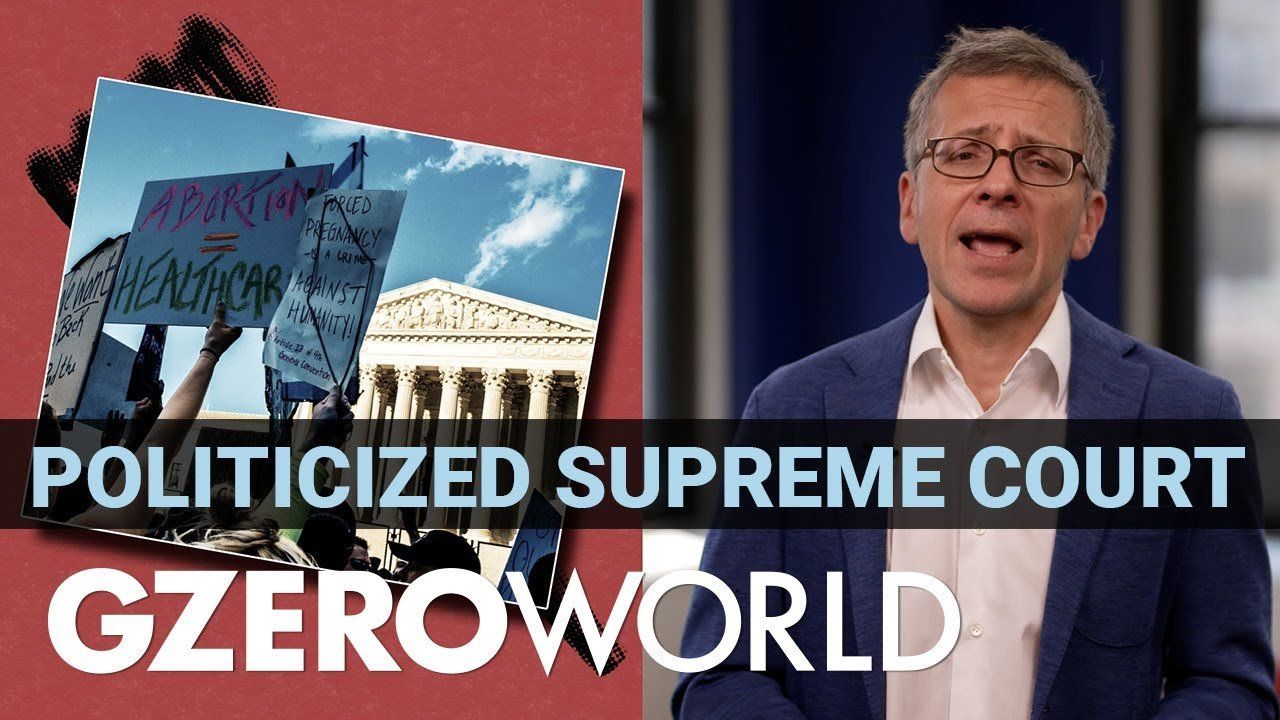
Has the Supreme Court become too politicized? American confidence in the Supreme Court is at an all-time low. Just 25% of US adults have “a great deal” or “quite a lot” of confidence in the court, a low in Gallup’s 50 years of polling.
In our "Ian Explains" segment on GZERO World, Ian Bremmer looks back at the history of SCOTUS and the idea that justices are supposed to be impartial “umpires” that stay above the fray of politics.
Major rulings from the conservative supermajority, like the 2022 Dobbs decision that struck down Roe v. Wade and eliminated the constitutional right to abortion after 50 years of precedent, have many Americans arguing the court is enacting a political agenda by quickly moving the law to the right.
But if you look back at history, the idea of nonpartisan Supreme Court justices is a relatively new phenomenon. From the first ever chief justice, John Jay, to Lyndon B. Johnson’s 1965 nominee, Abe Fortas, plenty of judges have a history of blurring the line between the executive, legislative, and judicial branches.
Recent ethics scandals involving Clarence Thomas––his wife Ginni pressed lawmakers to overturn the 2020 election, and revelations he accepted undisclosed gifts from a billionaire Republican donor––have critics calling for major changes on the Supreme Court.
Only in the last half-century has the court formed its identity as a neutral referee, which makes calls for reform by either party feel politically motivated. But the truth is, the court has always been political.
Tune into GZERO World with Ian Bremmer on US public television stations nationwide. Check local listings.
For more on the Supreme Court and what to expect from anticipated rulings this year, watch this episode of GZERO World with Ian Bremmer: "Who polices the Supreme Court?"
- Podcast: (Un)packing the Supreme Court with Yale Law's Emily Bazelon ›
- 3 key Supreme Court decisions expected in June 2023 ›
- Senators want ethics rules for SCOTUS ›
- Are US state courts the new battleground? ›
- Who polices the Supreme Court? ›
- The major Supreme Court decisions to watch for in June - GZERO Media ›
- How will the summer of 2024 be remembered in US history? - GZERO Media ›